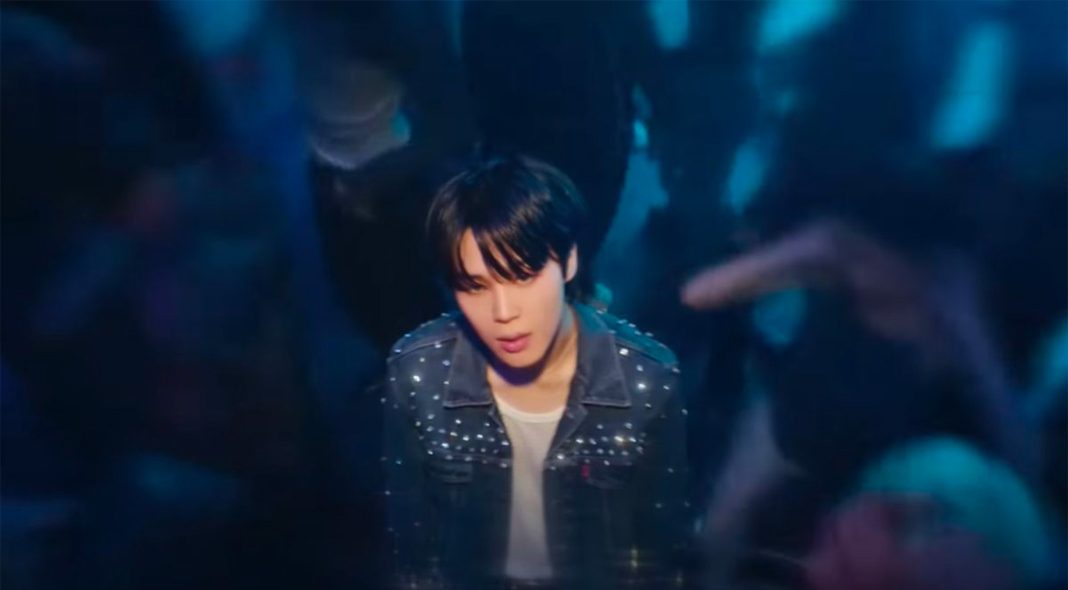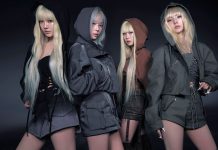11 years ago, a thumping beat and novelty horse-riding dance changed everything. The artist was Psy, and the song was ‘Gangnam Style’, a satirical fun-poker at boujee upper-class culture in Seoul. Quickly becoming a UK staple of school discos and viral videos, ‘Gangnam Style’ hit number two on the US Billboard charts, sparking global interest in the emergence of Hallyu; a Korean wave of popular entertainment culture rivalling anything that the west could produce.
Fast forward to 2023, and another male Korean soloist has beaten Psy’s chart record. Professionally known as Jimin, Park Ji-min, one of the seven members of BTS, has just released his debut extended play, FACE, to unprecedented levels of success.
Trap-rap-inspired single ‘Set Me Free Part.2’ did well, but it’s ‘Like Crazy’ that has really ignited people’s imaginations. Debuting at number eight in the UK and number one in the US, ‘Like Crazy’ makes Jimin the highest-charting Korean solo artist in American history. Though K-Pop’s global appeal has been impossible to deny for some time now, this achievement carries real symbolism, cementing him as an undeniable crossover star.
Of course, not every solo idol is also a member of BTS, bringing along a pre-existing loyal fanbase in the form of ARMY. Recent solo efforts from Jin and J-Hope have performed well internationally, and yet neither ‘The Astronaut’ nor ‘On the Street’ has quite climbed to Jimin’s heights. So what is it about Busan’s sweet son that is hitting all the right notes?
“Jimin’s solo success shouldn’t be a surprise,” says Roger, a BTS stan. “He’s been the main English vocalist on ‘Dynamite’ and ‘Butter’; two of BTS’ most successful international hits. When you couple this with the triple threat of a soft singing voice, incredible dancing, and the sort of non-threatening cute-handsomeness that has propelled the likes of Justin Bieber, Harry Styles, or Justin Timberlake to solo success, it’s obvious that a US-inspired single like this would do well.”
Roger hits the nail on the head. Where other BTS solo members have experimented with hip-hop or classy, slightly old-fashioned crooning, Jimin’s ‘Like Crazy’ goes straight for cool, contemporary radio R&B, slotting neatly next to The Weeknd, SZA or even Usher with his smooth, lamenting falsetto. Jimin has kept the quality of “ppong” (the Korean word for the wistful, ‘salted-caramel’ production quality that makes K-pop so distinctive), but also drawn heavily on the UK/US film which inspired the title of the song, capturing the torment of long-distance relationships through disorientating, romantic lyrics about getting “lost in the light”.
Coming from a band that often prioritises messages of joy and infallible hope (while broadly avoiding sexual themes), a song like ‘Like Crazy’ also allows Jimin to embrace his vulnerabilities, experimenting with an edgier side. UK ARMY Meg praises his openness on ‘FACE’, helping to show more of the personality he brings to the group.
“‘Set me free pt.2’, I interpreted as talking about having freedom from people’s expectations of him,” she says. “He’s talked about writing the majority of the music straight out of the pandemic, thinking about intimacy and darker emotions. He’s soft and strong at the same time; he is expressive when he is feeling something intensely, but is also a steady and calming person with his fans.”
To Jimin’s credit, Meg also notes that he seems quite overwhelmed by ‘Like Crazy’’s success, never taking ARMY for granted. “After the album was released he posted on (fan platform) Weverse, and did a live video at 2 am in the Korean morning to thank everyone for supporting him to the US number one. As his fan, I’m so happy he’s been allowed to finally release the full album he’s always talked about wanting.”
In western culture, the release of a solo single from a boyband member is a signal of unrest, the beginning of a band’s end. Not so with Korean acts: while the stereotype of idolship as a tightly-controlled, personality-suppressing business is rooted in some truth, members are increasingly encouraged to use solo music as a way of forming closer bonds with their audience, driving back into the global visibility of the genre as a whole. Rookie group StayC are relatively new on the scene, but have seen huge YouTube success with individual covers, making their respective influences clear from the off. Nodding to US acts like Avril Lavigne, John Legend, and Ariana Grande, a fluid feeling of cultural exchange is established, free of boundaries.
At its worst, a focus on K-Pop’s western crossover can feel a touch imperialistic, suggesting that this is the only lens through which success can be viewed. As we saw all those years ago with PSY, the nuances of lyrical and visual intention can often get lost in translation, fetishising foreign artists and reducing their music to novelty. Nonetheless, the way that K-Pop has built such an international audience is still something to celebrate, championing and legitimising the power of female and teen-driven fandoms.
While K-Pop bears a disproportionate brunt of ‘hysterical stan’ criticism, its international community spirit has done some amazing things in the last decade; innovative Black Lives Matter activism and fundraising, a fresh focus on the importance of choreography, and endless forms of fannish creativity which have kept the industry on its toes, from fan cams right through to impressive ‘chart gaming’ streaming missions. Here in the UK, it’s thrilling to see groups like NCT Dream sell out Wembley Arena, or to see HMV stores stock (and immediately sell out of) albums by rookie artists like NewJeans and Le Serrafim, making up for our current lack of homegrown pop groups.
As the global visibility of K-Pop shows, the commercial appetite for non-English speaking music is only growing. Suga is the next BTS member due for solo release, while impending military enrollment should prompt releases from the others, leaving ARMY with personal parting messages to tide them over during the hiatus.
Meanwhile, BabyMonster, the documentary search for a new idol group, is summoning up ‘Making The Band’-era feels on YouTube, while next weekend, Blackpink become the first K-Pop group to headline Coachella. NewJeans and aespa are hot on their world-dominating heels thanks to collaborations with Coca-Cola and Tetris, two of the most global brands you could possibly think of. ‘Like Crazy’ may have been the first solo song to hit the number one spot, but in the words of the BTS themselves, K-Pop’s best is almost certainly still to come. With this much abundant talent and presence, how could it not?
READ MORE: Hype Girls! How K-Pop newbies NewJeans caught the world’s attention






